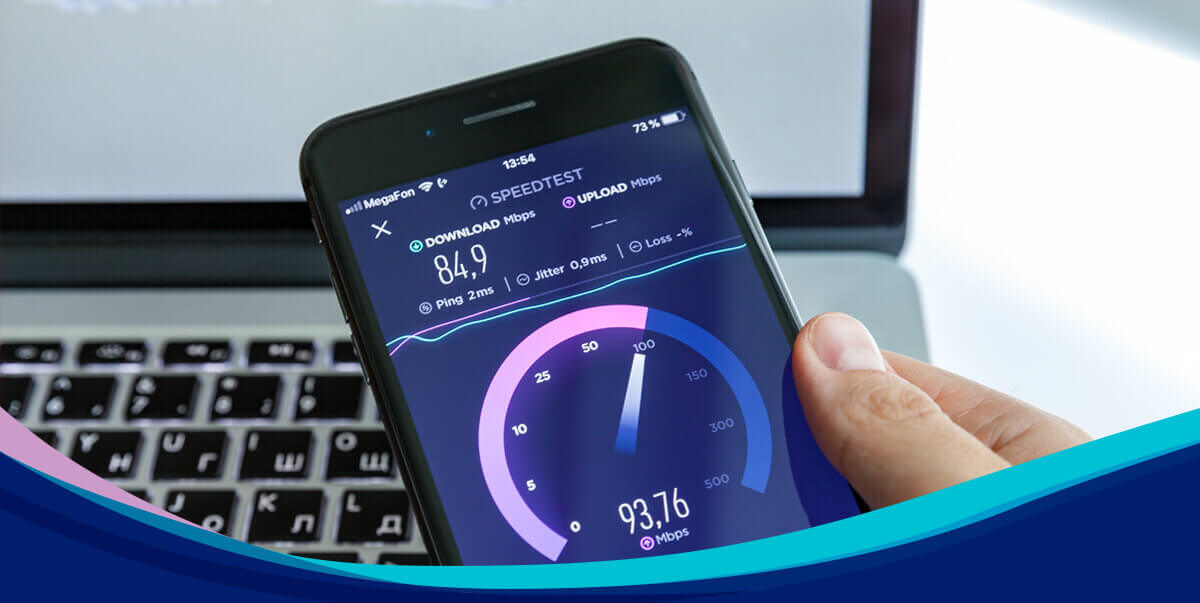What is full fibre broadband?
 Dan Howdle • December 9th, 2024
Dan Howdle • December 9th, 2024

You may have seen the term 'Full Fibre' popping up all over the place. Of course, we already had 'superfast fibre', which has now been relegated to the descriptor of 'Standard Fibre' to differentiate it from Full Fibre. So what is Full Fibre exactly?
Well, it's a better, faster broadband technology, and now it won't even cost you more than Standard Fibre once did, provided you're not comparing the cost to a much faster package. It's caught up with Virgin Media, which has offered 1Gbps+ broadband for a couple of years now. But that doesn't quite cover what it is exactly. Let's find out.
What is Full Fibre?
In general, Full Fibre describes a broadband service that only uses fibre optic cables from end to end. In a Standard Fibre service, where speeds are usually advertised as being around 38Mbps or 65Mbps, the fibre part of the cable only goes as far as your local street cabinet. The distance from the cabinet to your house is then connected by copper wires, which limit the maximum speed you can get to around 75Mbps at a stretch. And in fact, the further you are from the cabinet, the slower your connection will be; even if you are on a 65Mbps fibre service, you may actually get much less.
In comparison, a Full Fibre connection has no copper wires at all – the fibre cables go all the way to your property, meaning you can enjoy far faster broadband speeds with no slowdown caused by copper cabling, as well as much lower latency (important for online gaming). Full fibre is also far more reliable form of broadband, with some 60% fewer faults reported using the technology versus Standard Fibre.
The terminology used to describe the faster speeds that Full Fibre can provide can vary, and can become quite confusing as there is not yet an industry-wide standard name. From Full Fibre to 'gigafast' or 'ultrafast', so here's a rundown of the terminology you might come across.
- Fibre to the property (FTTP) – Also referred to as Fibre to the Home (FTTH), this refers to a true Full Fibre connection, where the fibre optic cables come all the way into your home
- Pure fibre –This also refers to a Full Fibre service, with no inclusion of copper cables anywhere along the route to your home
- Gigabit broadband – This is a term used to describe the speed of the connection on offer, rather than the means by which it is supplied. A gigabit (1Gbps) is equivalent to 1000Mbps; a speed that can be provided by Full Fibre, or by Virgin Media, which isn't technically Full Fibre but a completely separate cabling technology
- Ultrafast – Also describing the speed, rather than how it is delivered, an ultrafast service is formally defined as offering speeds between 300Mbps and 1000Mbps
- Gigafast – This is a marketing term used by some providers to describe Full Fibre broadband
- GFast – GFast is an upgraded form of copper broadband that can reach potential speeds of 330Mbps. It is not technically Full Fibre, but it can reach some speeds comparable to those offered by Full Fibre
- Virgin Media Broadband – Virgin Media runs on its own network of cables and uses neither copper not fibre optic. Instead, it runs on pre-existing cable TV wires, known as DOCSIS 3 coaxial cables which can provide the high speeds offered by Virgin Media

How fast is Full Fibre broadband?
A Full Fibre optic connection offers the potential of extremely fast speeds, with up to 1000Mbps (1Gbps) now widely advertised by a number of providers, and some altnet providers (that operate only in small, local areas) offer up to a completely crazy 7Gbps! However, as with any other broadband speeds, such as those offered by a Standard Fibre connection, the speed that you can actually get may not be as fast as the top speeds advertised by the providers. Your chosen broadband provider will give you an estimated speed that you can expect to receive before you sign up.
A 1Gbps broadband connection provides an incredibly rapid download speed, meaning anything you do online should happen almost instantaneously, from streaming video in UHD to loading web pages. To give you an idea, an average high definition movie will take about eight minutes on a 65Mbps Standard Fibre connection, and about 40 seconds with a 1Gbps Full Fibre connection!
Thanks to the higher-spec routers that tend to be offered with these sorts of speeds, Full Fibre routers will also tend to cope with supporting more concurrent devices, from tablets and games consoles to phones and smart home devices. However, as time has moved on, you'll find more and more providers have taken to simply offering one router across their entire range, or at the very least a very capable router, along with a turbo-charged version for their top speed package.
Upload speed of Full Fibre
Upload speed dictates how quickly you can upload information to the internet, and a good upload speed can be useful to anyone who regularly sends large files. Upload speed is usually a lot slower than download speed (the speed which providers use to advertise their packages) because it's just not as useful broadly speaking.
However, it is the case that the faster the download speed of a package, the faster the corresponding upload speed will be.
Where is Full Fibre broadband available?
Although widely advertised, Full Fibre is still not available to everyone. The last time it was measured by Ofcom in 2024, in fact, it was available to around 62% of UK homes. That's why it's a good idea to use a postcode checker if you want to be sure if you can get it or not.
BT Full Fibre
Providers on the Openreach network (including BT, Sky, EE, TalkTalk and most other providers) offer Full Fibre connections to their customers, depending on where you live.
Virgin Media full fibre
If you cannot get a Full Fibre connection with any other provider, then it's worth looking to see if you can get Virgin Media at your address. Virgin Media isn't technically 'Full Fibre' because has its own unique cabling technology that isn't 100% fibre optic. Its top-end speeds are the fastest widely availably in the country though, with its flagship 'Gig1' package offering, on average, a whopping 1130Mbps. More recently, Virgin Media has begun offering Gig2, which is Full Fibre, but since this means it operates on an entirely new network (not Virgin's existing network), availability is extremely limited.
Full Fibre specialist providers (altnets)
As well as the mainstream broadband providers, there are specialist providers that offer Full Fibre. These are known as altnets or alternative networks. For example, Gigaclear specialises in providing Full Fibre to rural communities and Hyperoptic provides its service to blocks of flats and businesses in urban areas. Community Fibre operates solely in London, and Pure Broadband is focussed on Hull and surrounding areas. There are many others, all local to a specific area or areas.
What if I can’t get Full Fibre?
Although the idea of gigabit broadband is appealing, for most average households it is excessive, but Standard Fibre connections of around 65Mbps are starting to feel slow for many households these days.
It’s also worth bearing in mind that even if you sign up for a package such as Virgin Media’s Gig1, you won't get that to any one device over Wi-Fi, because Wi-Fi is simply not capable of those speeds yet, unless you're able to drop a lot of money on an additional Wi-Fi 7-capable router. The only way to really benefit from such speeds is to connect a many, many devices all vying for their own bit of bandwidth.
